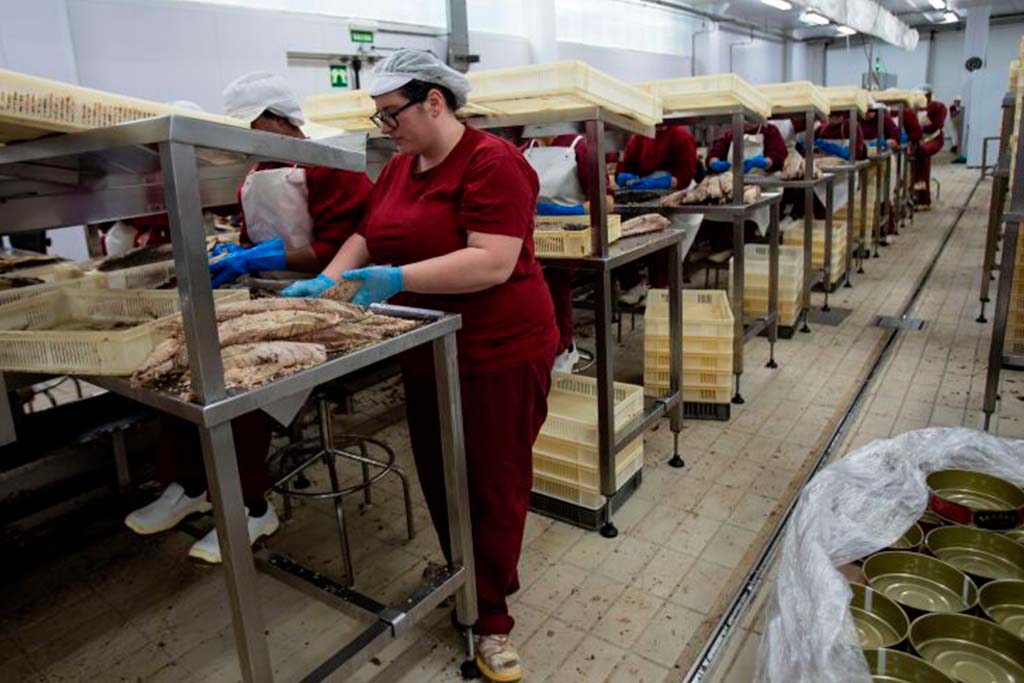Tuna is the jewel in the crown of canned food exports
Like the majority of great stories, the Bermeo canning industry tradition origins were very humble. According to the municipal archives, canning was done in small family workshops and private homes until the beginning of the 18th century, when it gradually gave way to the industries we know today and that have transformed this canning tradition into a benchmark for the future of the sector.
The country as a whole produces 225,000 tonnes of canned tuna, making Spain the second global producer after Thailand. Altogether there are over 60 companies generating approximately 7,500 jobs with an economic impact of 2,233 million Euros. Around half a dozen sector companies are located in this fishing town.
According to data provided by management, the total exports last year for pre-cooked and canned fish experienced a slight increase of 0.46% in volume and 12.87% in value, reaching a total volume of 171,286 tonnes with a value of over 959,087 million euros. Undoubtedly the main product was tuna, representing 55% of Spanish exports goods of this kind. According to the Anfaco-Cecopesca report “The export volume from January to September 2022 was 94,300 tonnes with a value of 557 million Euros”.
The main destinations of these exports are still chiefly EU countries (88%); and among them the Italian and French markets are the most important. The main global competitors are Asian markets like China and Thailand; but also Vietnam and Indonesia, which compete by price worldwide. Outside Asia, Ecuador and Morocco stand out.
In terms of numbers of fish processing industries, the Basque Country is the second autonomy, with the majority being: canning, fish-based pre-cooked dishes and freezing.
Industry 4.0
The quality of jars and tins is the most appreciated worldwide. Why? Well, one of the keys is that the product is essentially obtained during the fishing campaigns, where the fishermen fish respecting the environment in addition to ensuring the best quality fish, guaranteeing sustainability of the fishing areas besides maintaining marine resources. Cooking the raw material is critical in their processing. Currently, analysis and control of tuna humidity and fat is carried out at specific laboratories where analysis results condition the production line decision-making.
New 4.0 technologies have been launched to measure cooked tuna fat and humidity “online” with a view to improving and optimising results. Thus the quality and production departments can make decisions in real time, thereby improving their productivity ratios. Another problem for the canning industry is managing the depleted brine from cooking the tuna given the high cost of its management since its high salinity hinders its pouring into the sewage network.
Among the different actions undertaken in this sense is the biorefinery process fostered by AZTI technological centre in conjunction with the Bermeo company Serrats. The technological centre pointed out: “This will enable going from managing 265 tonnes of brine to 26.5”. This initiative has been funded by the Basque Government under the R+D+i programme, and is based on recovering depleted brine via a regenerated brine prepared for its reuse in cooking.



